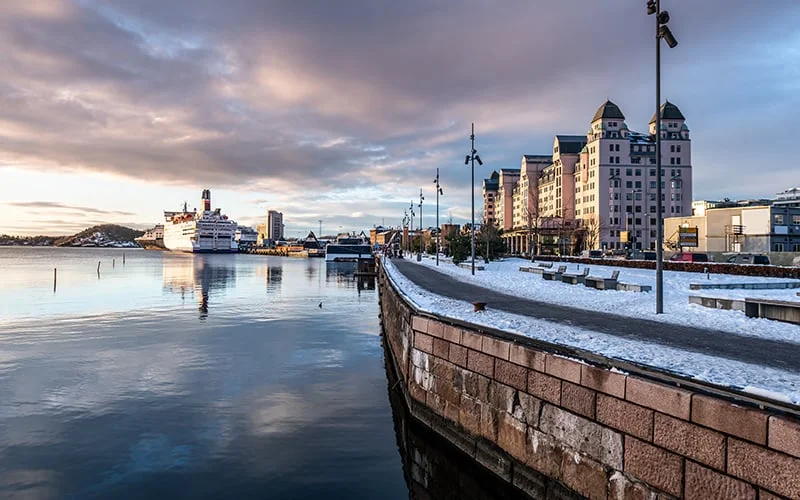Oslo Embassy Closure: What Happened and Why?
Maduro's Embassy Closure: A Desperate Act or a Glimpse of Hope for Venezuela?
It's easy to see Venezuela closing its embassy in Oslo after Maria Corina Machado's Nobel Peace Prize as a dark omen, a sign of Maduro tightening his grip. The news, delivered tersely by Norway's foreign ministry, feels abrupt, almost theatrical. The embassy doors shut, phones disconnected—a diplomatic cold shoulder if I've ever seen one. But what if this isn't just about a dictator throwing a tantrum? What if it's a sign, however twisted, that the walls are starting to crack?
Machado's Nobel win, honored "for her tireless work promoting democratic rights," clearly struck a nerve. Maduro's response, branding her a "demonic witch," is straight out of the authoritarian playbook. But here's where I see a flicker of something else. Strongmen don't usually bother with insults; they prefer silence or, worse, outright repression. The fact that he felt the need to lash out, to resort to such cartoonishly villainous language, suggests he's feeling the heat. It’s like a cornered animal, lashing out because it senses its power waning.
The Butterfly Effect of Recognition
Think about it: Machado, despite being barred from running in the 2024 election, is still a force. Her dedication of the Nobel prize "to the suffering people of Venezuela" and, controversially, to Trump, shows she's playing a global game. She's turning up the volume on Venezuela's plight, forcing the world to listen. And while her support for US military maneuvers might raise eyebrows – is intervention truly the answer? – it underscores her unwavering commitment to change.
And let's be honest, the Nobel Peace Prize isn't just a pat on the back. It's a spotlight. It amplifies Machado's voice, gives her legitimacy on the world stage, and, crucially, emboldens the opposition within Venezuela. It’s a recognition that the world is watching, that Maduro's actions have consequences. The international community is, however passively, saying "we see you and we support the democratic process."
The closure of the embassy, then, might not be a sign of strength, but of desperation. It's an attempt to isolate Venezuela, to cut off dialogue, to silence the growing chorus of dissent. But in today's interconnected world, isolation is a myth. Ideas, hope, and the demand for freedom can't be contained by closing doors. Venezuela closes embassy in Oslo after opposition leader awarded Nobel peace prize

I saw a comment on Reddit the other day that really stuck with me. Someone wrote, "Maduro can close embassies, but he can't close the hearts of the Venezuelan people." And that’s the crucial point, isn’t it? You can’t suppress a people’s yearning for freedom.
This reminds me of the printing press. When Gutenberg invented it, the established powers—the church, the monarchy—tried to control the flow of information, to suppress dissenting voices. But the genie was out of the bottle. The printing press democratized knowledge, empowered individuals, and ultimately fueled the Renaissance and the Reformation. In a similar way, today's technology – social media, encrypted communication – makes it harder and harder for authoritarian regimes to control the narrative.
But, let's be clear. We can't be naive. Technology isn't a magic bullet. It can be used for good or ill. The spread of misinformation, the rise of echo chambers, the erosion of trust in institutions—these are real dangers. The challenge for us is to harness the power of technology to promote truth, justice, and democracy, while mitigating its risks. It's a big responsibility, and one we can't afford to shirk. When I first saw the impact of this, I honestly sat back in my chair, speechless.
This Isn't Just About Politics—It's About Humanity
So, what does this mean for the future of Venezuela? I don’t have a crystal ball. But I believe that Machado's Nobel Prize, coupled with the embassy closure, marks a turning point. It's a sign that the world is paying attention, that the pressure on Maduro is mounting, and that the Venezuelan people's struggle for freedom is far from over.
What this means for us is… but more importantly, what could it mean for you? Imagine a Venezuela where the voices of the people are heard, where democratic institutions are strong, and where the rule of law prevails. It's a vision worth fighting for.
A Glimmer of Light in the Darkness
Tags: oslo
DWP Christmas Bonus: Who Gets Paid and When?
Next PostWendy's Closing Hundreds of Locations: What Happened and What's the Real Story?
Related Articles
